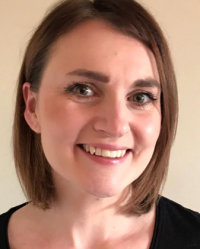How life coaching helped my OCD recovery
Life coaching dramatically changed my life. I had received cognitive behavioural therapy (CBT) in the past for obsessive-compulsive disorder (OCD), and although it did help in some ways, the effects were not long-lasting. In hindsight, I don't think I wanted therapy. I was persuaded to go, but I suppose the commitment just wasn't there and I resisted the exposure exercises.

Fast forward ten years and I was still working in dead-end jobs (I couldn't work in my trained profession because of my OCD) and there were so many OCD factors that prevented me doing other, more fulfilling work.
I felt that career-wise, I wasn't living up to my full potential. I had always wanted to work for myself and knew I had a lot to give. It was at this point that I saw a free workshop for life coaching. Although I was sceptical, I thought "what have I got to lose?", so I went along to the day without expecting too much.
After one day, my mind undertook a dramatic change. The coaching workshop wasn't full of hippy, motivational quotes but was practical and based on psychological principles (and it was - I checked the resources afterwards). Within six months I had lost weight, done things I had been meaning to do for ages, and, most importantly, signed up for more CBT for my OCD.
I stopped dwelling on the "why me?" and thinking about what a duff hand life had dealt me. Instead, I started to look around me and recognise that everyone has their burden to bear. This freed me up to start doing something about my OCD. This time I was able to channel the motivation to commit fully to therapy and stopped resisting the exercises. I found a really good CBT NHS therapist and developed a more positive outlook in general. The most dramatic and life-changing event was that I managed to get back to driving, something I hadn't done in five years due to OCD.
The other important difference I noticed was that, as I started to train as a life coach, my confidence grew and I felt more fulfilled, and this had a knock-on effect of making it easier to do therapy.
I would now say I am happier than I have ever been. I feel I am about 80% recovered from responsibility OCD; 90% recovered from pure 'O' (not strictly an OCD theme but those in the know will understand what I mean), and about 40% recovered from contamination OCD. Contamination OCD has always been the hardest for me, and my aim for 2020 is that I reach 80% recovered.
There are plenty of times I still struggle, but I don't feel hopeless like I used to. I now accept that I will probably have OCD, to some extent, for the rest of my life, however now I'm okay with that. Since I have accepted my OCD, I no longer feel that sense of failure when I couldn't 'cure' it. I now manage it and continue to make progress in my recovery.
Experts still currently consider cognitive behaviour therapy and exposure-response prevention to be the most effective form of therapy for OCD, and from a personal perspective, I feel it has been for me. I require that my clients with OCD have undertaken CBT, can understand their OCD, and are making progress in recovery. For me, their OCD recovery must come first, and it is important they can recognise triggers and when their OCD is getting worse. I appreciate that not all coaching techniques, tools, and practices are suitable for people with OCD - for example, 'thinking positive' can sometimes go against CBT practices and be detrimental to recovery.
So if you were to ask me if life coaching helped treat my OCD than I would probably say "no, not directly", but if you were to ask if life coaching has helped my OCD, then I would say "yes, definitely". If it wasn't for life coaching, maybe I wouldn't have found the motivation to try therapy again.
Coaching was life-changing for me; it gave me the motivation and confidence to seek therapy. Being around inspirational and uplifting people helped me to view life from a new perspective, and I am happier than I have ever been.

Find a coach dealing with Confidence
All coaches are verified professionals






